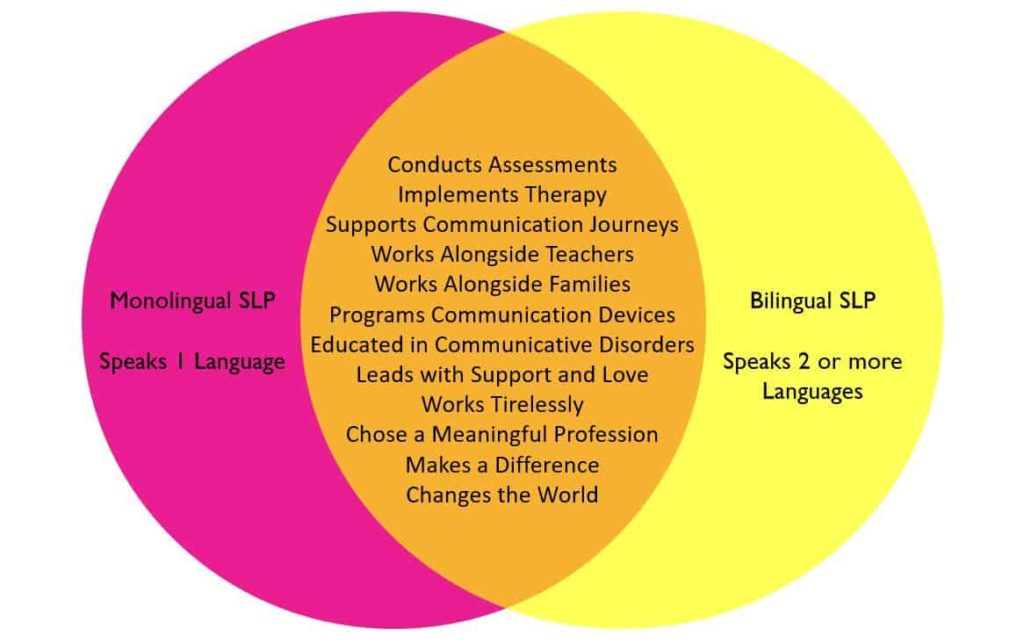 The Concern
The Concern
A few weeks ago, I wrote a blog post about Representation–finding and supporting speech-language pathologists who represent the demographics of the diverse students and clients we serve. The words were personal for me. As someone who grew up outside of the majority, my narrative includes hurtful tales as a child, and now, woman of color. The blog post, in turn, was an opportunity to support one valuable subset of our profession. I received feedback that needs to be addressed. The purpose of the post was to support diversity in speech-language therapy. The words were not written to imply that being bilingual or having a specific ethnicity was necessary to support our children from diverse populations.
I’ll be honest. The sentiments of the feedback ruminated in my head and heart for a while. Part of the hurt was on behalf of individuals who felt their efforts were not relevant and valued. This is far from my truth. Now, I share my response to my beloved peers.
The Response
Hi, my name is Phuong Palafox, and I wrote the piece on Representation for the Bilinguistics blog. I wanted to reach out to you regarding your feedback.
First, thank you for taking the time to provide your sentiments on the piece. As an SLP with school and clinic caseloads, I understand the daily grind of our job, and time is surely not on our side. For me, receiving feedback is a privilege, and all thoughts from our readers and presentation attendees is thoughtfully received.
Second, it sounds like you and I share a great passion for the meaningful work we do to support our students—especially our children from diverse backgrounds and low-income communities. As SLPs, we differentiate to the needs of each student needing speech-language therapy, and it sounds like you understand the value of supporting the socio-emotional and life (including love, love, love) needs of our students needing that individualized support. Thank you for that.
Last, I wanted to express that the post I wrote is personal. As a person who spends her days existing within a minority group, I will say that representation makes an impact. Is it the sole factor for students success? Absolutely not. In saying that, there is value in it. This topic also affects our peers. Based on my interactions with SLPs and individuals in the midst of acquiring their degrees for our profession, it is a concern for men and women of color in our field, as well.
You are right. The work of all SLPs is meaningful, and I will be the first to speak/shout/cry this message. This is why I travel to all parts of the country to spend time with my peers to advocate for our important role. In saying that, I also acknowledge that in the same way we differentiate to the needs of our students, the same consideration needs to be given to SLPs—giving each person in our field the opportunity to be valued in our profession. I write about this because it is important for our SLPs and students from diverse backgrounds.
We can 1) support diversification in our field and 2) acknowledge the efforts of all SLPs. The two are not mutually exclusive. It is a tough job, and I’m confident we have each other’s backs when it comes to all of our responsibilities.
Again, I thank you for your feedback. Please know that it has made an impact on my brain and heart these last few weeks. I wish you well at the start of this new school year. Here’s to the meaningful work we do.
Take care,
Phuong


 The Concern
The Concern


“The words were not written to imply that being bilingual or having a specific ethnicity was necessary to support our children from diverse populations”. If this is what people took away from your initial blog post, I’m disappointed. Your response to this feedback was graceful and poised. Let’s be clear, every word you stated is true. Kids in minority groups need to see themselves and hear themselves in positions of leadership. It brings an aspect of relatedness not otherwise gained by majority populations. The majority can still bring about change and make an impact, but we definitely need more diversity in our field. If the majority of your negative feedback was from white, cisgender, straight, monolingual therapists, then Bye!
Signed,
a white, cisgender, gay, monolingual therapist
Christy,
Thank you for your thoughtful comment. You are absolutely right. We need more diversity, and the majority can surely play an important role. So, on this Friday, I am grateful for your roar. And, I as begin my work on Monday morning, I am going to have more fuel to my fire with SLPs like you supporting and loving and advocating.
Thank you,
Phuong
Thank you for your post. I may be a white therapist who learned Spanish as a second language, but I absolutely see the need for much greater ethnic, gender, socioeconomic, and racial diversity in our field. The profession suffers from its massive lack of diversity, and I thank you for calling it out. Both this post as well as your initial post on the topic were excellent.
Angela,
Thank you for your comment. Yes, we shall continue talking about this important topic. And, thank you for the work you’re doing to support the comprehensive needs of our valuable field.
Take care,
Phuong
Thanks for writing about this, Phuong. As a brown SLP, the micro-aggressions against colored folks (coworkers and children) from my coworkers hurts my soul everyday. There are day when I am in tears on my way home. Making fun of beautiful Nigerian last names, mocking little south asian babies for co-sleeping with their parents, making assumptions about parents being cousins because they’re a certain religion/ethnicity or just plain complaining that these ‘stupid bilingual eval’ are too much work and why dont the families just talk in English? It breaks my heart, leaves me stunned, enrages me (yea, my reactions are akin to the stages of grief) yet I smile, keep doing my thing and I keep hoping they will get over the bias and be kind to the child. I’m sorry you had to face the white lash but please know there are thousands of us out here dealing with being the only colored slp in the room and we get so tired somedays- thank you for speaking for all of us.
Thanks for writing about this, Phuong. As a brown SLP, the micro-aggressions against colored folks (coworkers and children) from my coworkers hurts my soul everyday. There are day when I am in tears on my way home. Making fun of beautiful Nigerian last names, mocking little south asian babies for co-sleeping with their parents, making assumptions about parents being cousins because they’re a certain religion/ethnicity or just plain complaining that these ‘stupid bilingual eval’ are too much work and why dont the families just talk in English? It breaks my heart, leaves me stunned, enrages me (yea, my reactions are akin to the stages of grief). I’m sorry you had to face the white lash but please know there are thousands of us out here dealing with being the only colored slp in the room and we get so tired somedays- thank you for speaking for all of us.
Sania,
I wish you could hear my audible affirmations as I am reading your honest and thoughtful comment. I understand this so much. Microagressions happen so often. Just today, after ordering my soup for lunch, the woman behind the counter said, “Do you work at the nail salon?” It’s also reading over 500 comments on a closed social media post that discussed the “funny names” of students (many,many children of color) served in the schools. I have so many more tales that happen on the daily. So, dear, I understand the exhaustion and the grief and the sadness. However, despite all of this, I keep working because I know we are making a meaningful difference. I am also consoled by the efforts of my peers. So, thank you for being a part of this village. And, I am so glad we are here.
Take care,
Phuong